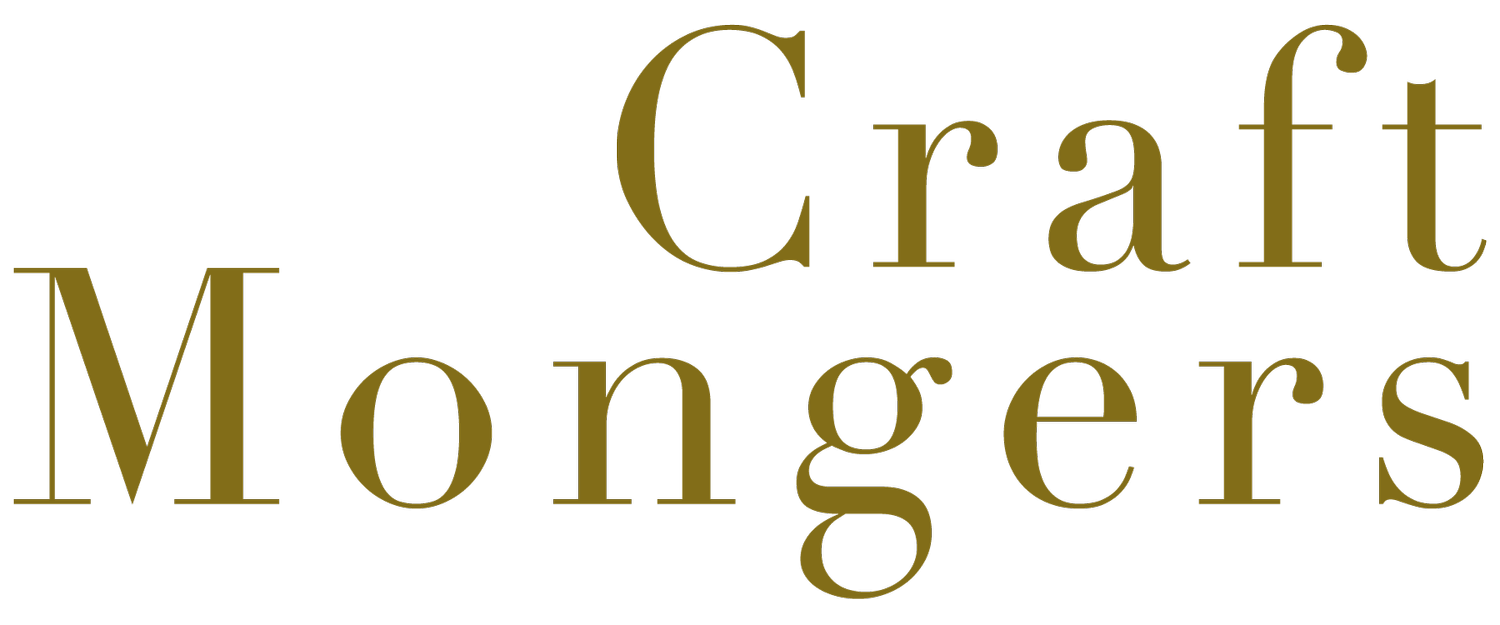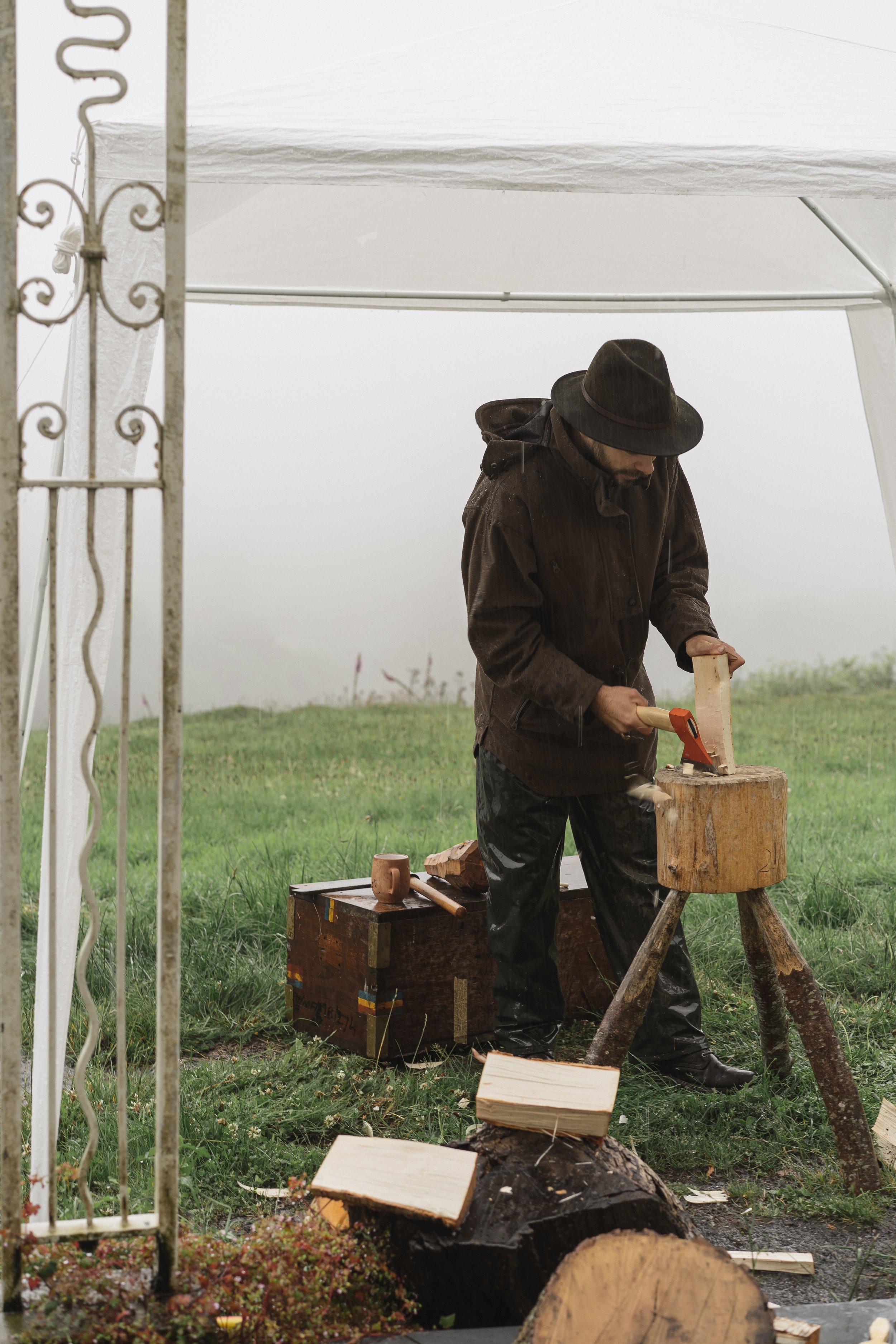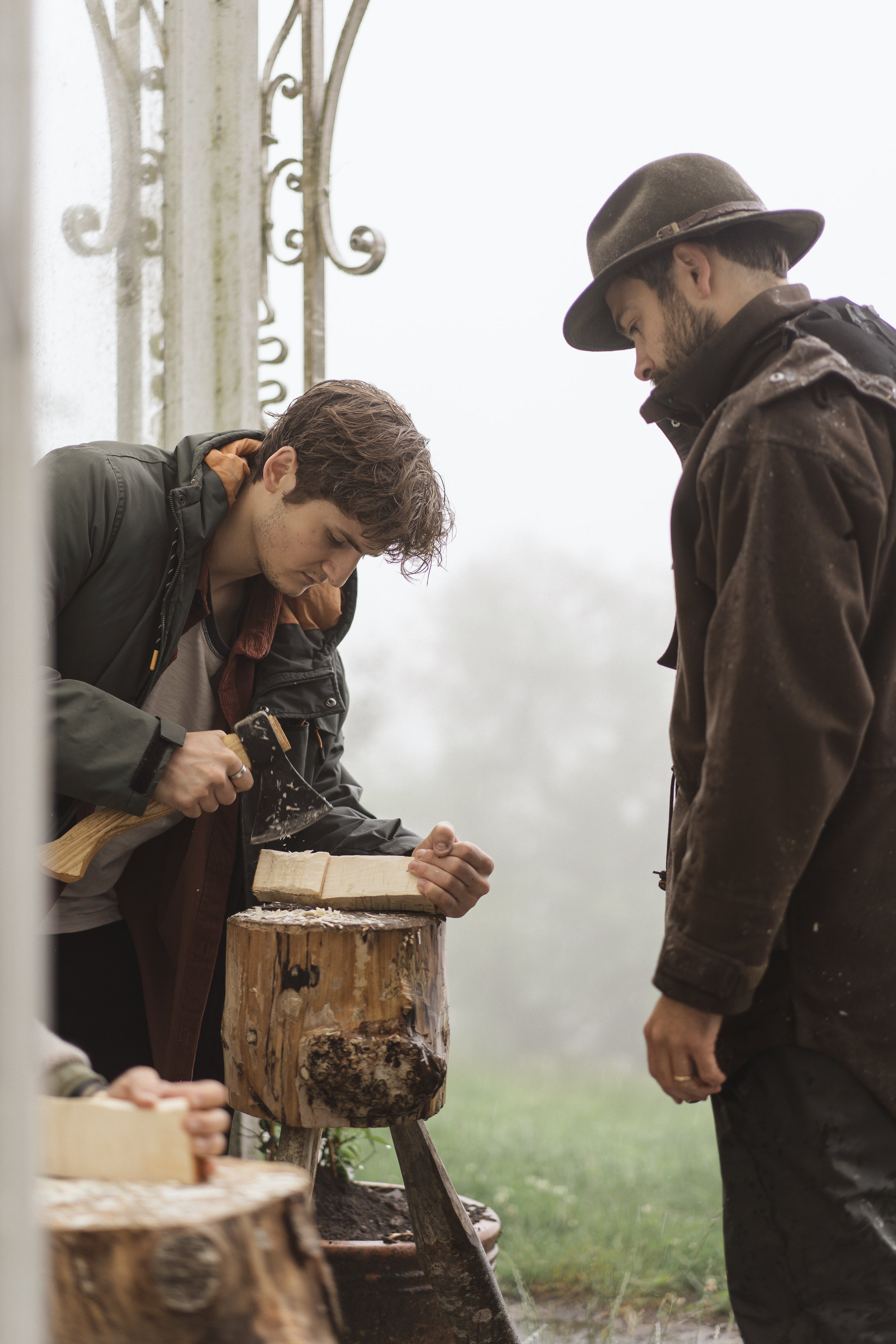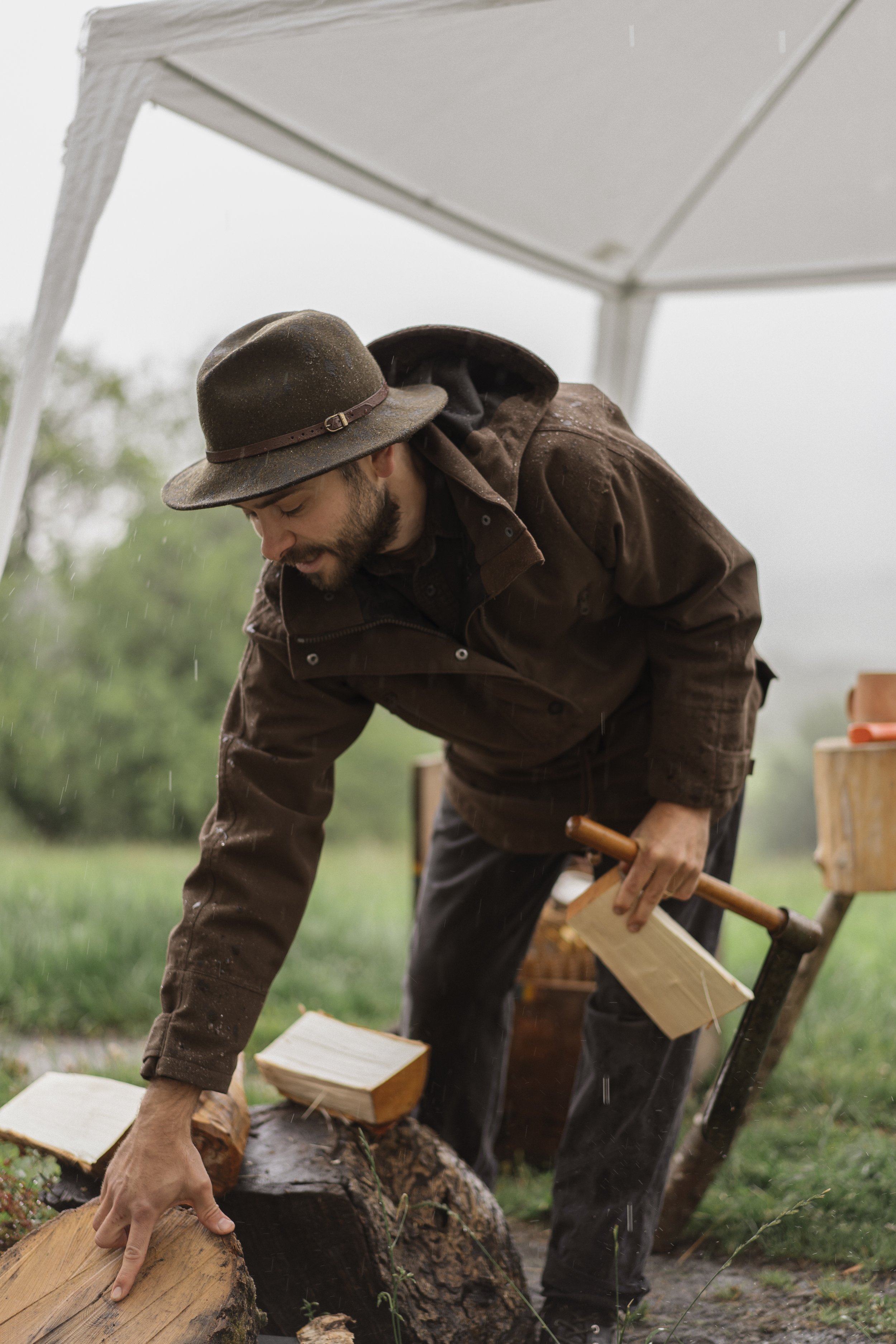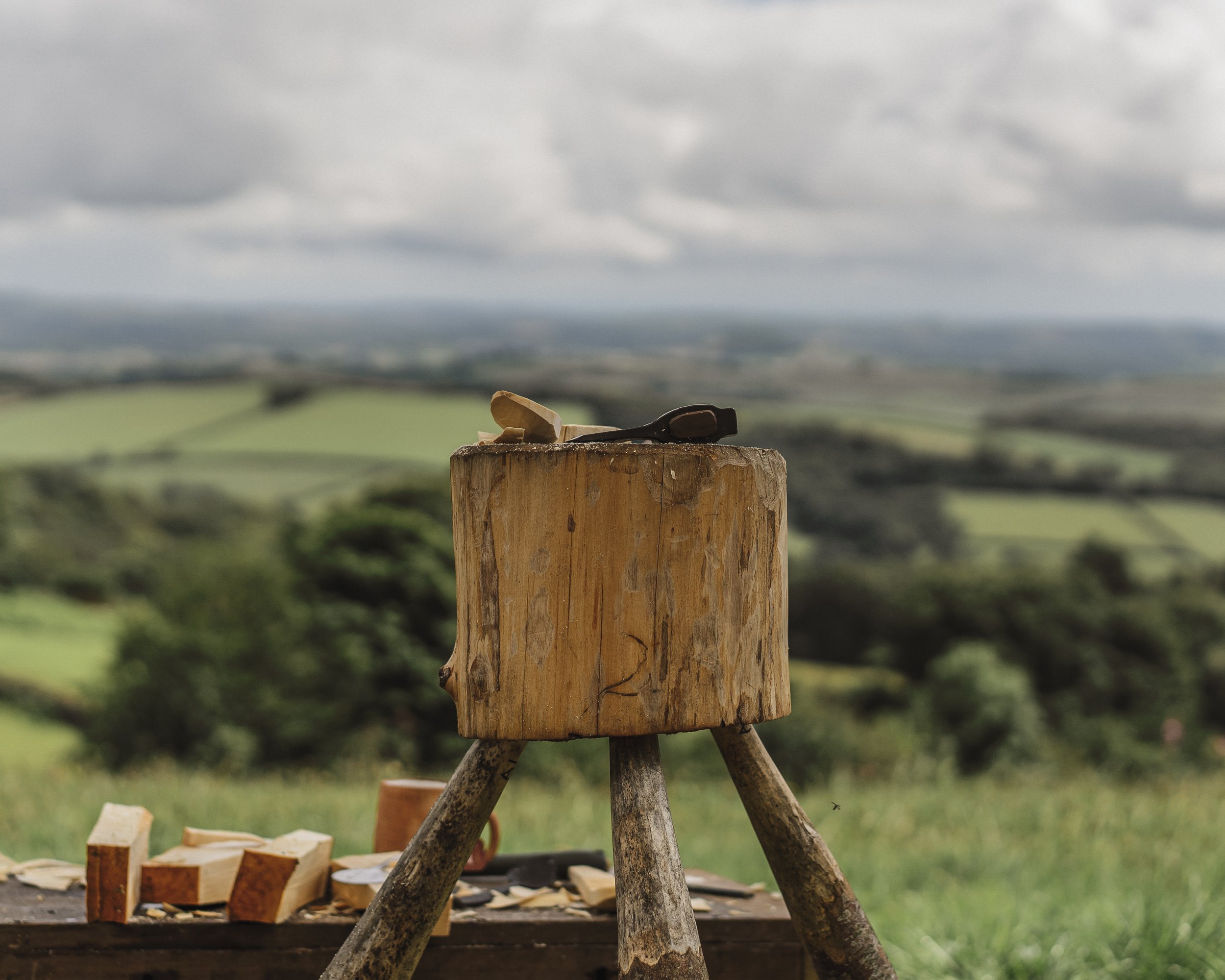Alex Finberg ⋄ Woodworker
The beauty of learning a skill is that the journey can begin at any point in your life, providing you have the necessary tools and willingness to try. Alex’s carving story began on his flat balcony in Camden, London with a camping hatchet, block of wood and little to no knowledge of the craft. During his early practice he was guided by youtube tutorials, one of today’s greatest tools at becoming the master of any trade, and collected dead wood from the park to carve with during lunch breaks. The eventual uprooting to South Devon meant a slight change of lifestyle and work environments. This area of the country has a habit of drawing in creatives from all over, creating communities of like-minded individuals through their lifestyles and crafts.
“I now work in the woods, my back garden and at home by the fireside in the evenings.”
Alex was able to find a community of carvers after meeting Chris from Oneday Woodcraft, who encouraged him to go to ‘Spoonfest’ – which is exactly as it sounds, a festival of spoon carving. The community and passion for craft he encountered there served as an inspiration and resulted in many more hours of skill development. Although he had some guidance from excellent teachers such as Adam Hawker and Friotioff Runhall, most of Alex’s journey was self taught.
“The learning curve can be steep: sharp tools being harsh teachers and green wood, although benign, can be unforgiving if you forget the basic principles of grain direction and slow drying.”
After much time of carving obsessively, he has now become an accomplished and attentive teacher helping others to begin their journey into the craft, running workshops from the Devon Green Wood Centre near Mothecombe, at Dartington Hall and at a special spot on Dartmoor with us, Craftmongers. He also works with Wild Embers forest school where he coaches children with special educational needs, running sessions on nature based education and granting learning opportunities beyond the classroom environment.
When asking Alex what drew him to woodwork and carving, he answered in a way that feels immensely relatable. There appears to be an ever-increasing collective notion or urge to disconnect with elements of the modern world that keep propelling forwards at an intense speed, and to slow down and reconnect with values and lifestyles more in tune with the old ways. The echo of this can be as subtle as spending more time in nature, growing some of your own food, or making more use of natural materials.
“What led me to this craft was more of a feeling, a yearning for connection to nature and an earnest desire to work with my hands to create beauty. It is easy to articulate now, but I was bereft at the time; looking for something with meaning to pour my energy into but without a clue what that could like!
If I was to share some encouragement it would be this: follow your instincts! Even if it’s just a hint of an inkling towards a craft or something that has been in the back of your mind to try for years, you never know where it might lead…”
Discussing the role of sustainability in relation to woodcraft, Alex touches upon the importance of reconnecting to the old ways, not by necessarily regressing backwards but by combining ancient wisdom with new innovations. Preserving and building upon the heritage and rich knowledge held by craftspeople, land workers and indigineous people is a way in which a new age can become a homage to the past without reliving it.
“These are the people we should be asking big questions like how to restore biodiversity loss. It is by empowering and investing in local communities to grow food and manage local resources in a more sustainable and beautiful way which supports the growth of a new story of thriving life on earth.”
Alex practices his craft sustainably by using wood that has been harvested through coppicing, a method of cutting trees to ground level to promote the growth of many new fast growing shrubs. Alex believes that coppicing done wisely is a way for people to utilise wood in various ways, including craft, all whilst increasing the biodiversity of woodland.
Learning a craft and developing it enough to become the foundation of your livelihood requires many hours of refinement, motivation and especially perseverance. The continuation of this is not always easy, even if it is something you enjoy, so we asked Alex where the drive for this craft comes from. What pushes his love of carving and allows him to dedicate so much of his time to it?
“It’s the journey. The continual process of learning and developing, tweaking spoon designs, taking great pleasure in eating with them, burning the ones I don’t like, moving forward! The continual love affair with trees and the variety of different woods and perhaps most of all the inspirational and wonderful community of carvers which exists here in the UK and around the world.”
